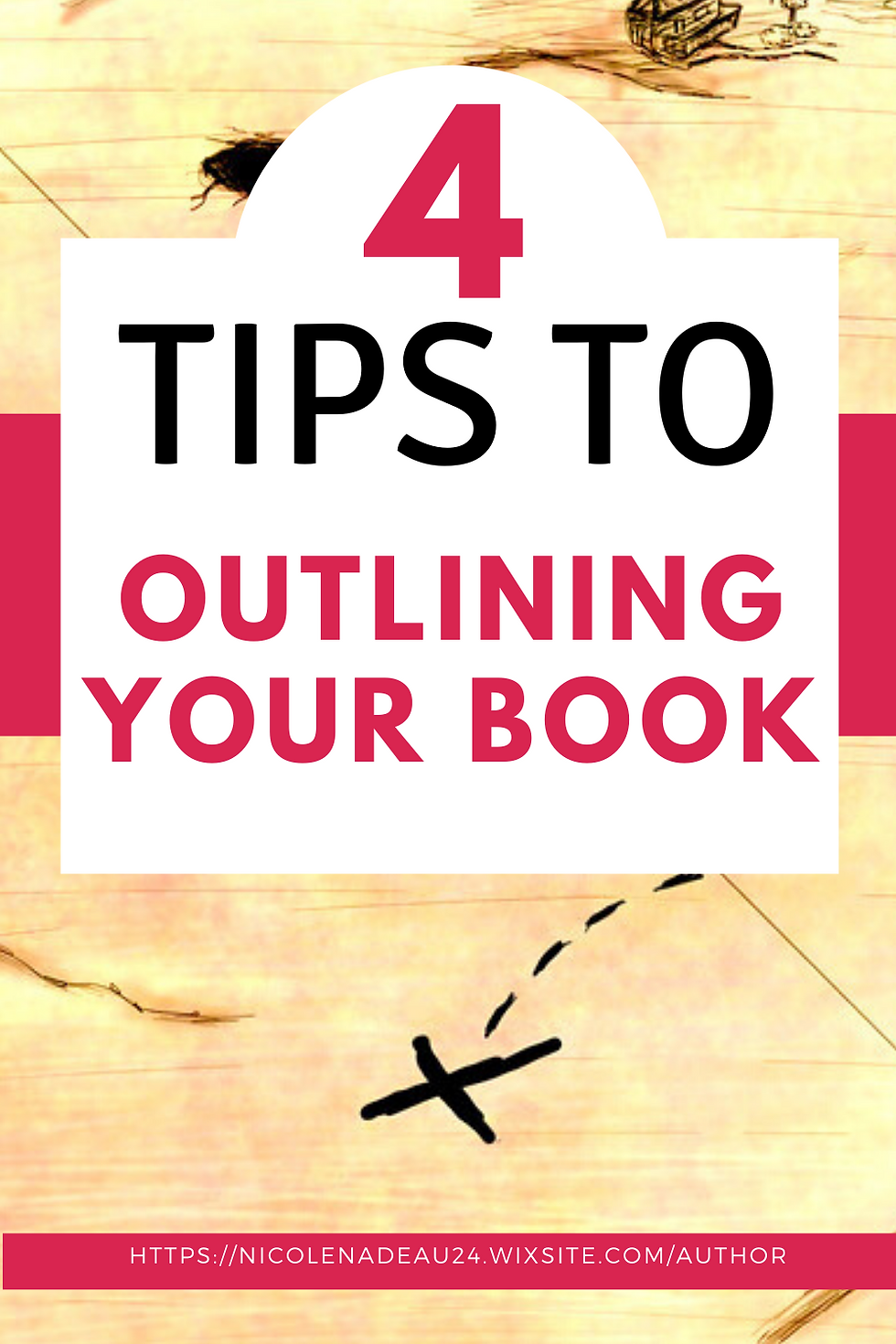Outlining: What You Need Before You Start Writing
- Nicole Nadeau

- May 1, 2020
- 3 min read
Updated: Jun 22, 2020
So you have the perfect idea for a book? Great, congratulations! Ready to start writing?
Pump the brakes.
I know it’s tempting to take your new idea and run with it, but you need to have a plan for it if you want it to succeed. You need a road map for your story. You need an outline.

Now, not every writer needs to outline. Aptly dubbed "pantsers", these writers fly by the seat of their pants and come up with the story as they go. If you’re a pantser yourself, way to go! You’re able to do something that most cannot.
For the rest of the writers, this post is for you.
There’s no right way to outline. Go into as much or little detail as you want. But as you begin to outline, there are a few things you need to do:
1). Research, Research, Research
You might be asking, “But Nicole, I’m writing a fantasy or a space epic. I don’t need to research for this type of book.”
Wrong.
You need to research no matter what you’re writing. But your research could be different depending on the subject.
For a historical romance, you’ll need accurate facts for that place and time period. And if it is a fantasy or a space epic, there’s still research to be done. J.K. Rowling included actual Latin phrases into the spells. And every space epic will have some shred of science in it.
Research is a fundamental step in outlining. It’ll help take your book to the next level.
2). Remember Your Natural Laws
Every fictional universe has it’s basic rules. Wizards cannot fly unaided. Magic can’t bring back the dead. There are natural laws you need to follow to make your story believable.
This is much easier to do if your story takes place in the present day. Just don’t act like most Hollywood movies and defy the laws of physics.
If you’re creating your own world, you need to make your own laws. What’s something that’s impossible with even the strongest of magic/science? Are there actual laws? What are they?
Worldbuilding is critical. We’ll cover it in another post, but for now, create your basic laws and cement them into your mind.
3). Know Your Cast Inside and Out
What is a story without its characters? They’re the major players, taking center stage as the action unfolds.
So, of course, you need to know every little detail about them. You don’t need the name of their second-grade teacher, but you do need to know their biggest dreams and deepest fears.
Are they insecure? Do they fall in love too easily? What’s their ultimate goal?
Answer these questions as you outline, and your characters will be the ones writing the story.
4). Have Your Ending Ahead of Time
Ironically as our last item on the checklist, you need to know your ending ahead of time. That way you know where you’re going and can foreshadow.
Crime novels do this expertly. When the culprit is caught, the detective recounts how they came to this realization while also touching upon red herrings found earlier in the story. It shows that the author knew all along who the criminal was and didn’t just pick them out of a lineup.
Having your ending in mind is key. It’s your final destination. Remember that as you outline.
Even though it’s more exciting to immediately start writing, outlining will save you time in the long haul. You’ll bypass the plot holes and the feeling of being stuck in your story. And maybe even some of the writer’s block.
So sit down and start outlining. Then you can truly enjoy writing your new story.
Make sure to subscribe to stay up to date!



Comments